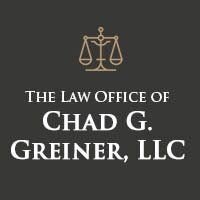Best Real Estate Lawyers in Georgia
Share your needs with us, get contacted by law firms.
Free. Takes 2 min.
Free Guide to Hiring a Real Estate Lawyer
Or refine your search by selecting a city:
List of the best lawyers in Georgia, United States
United States Real Estate Legal Questions answered by Lawyers
Browse our 2 legal questions about Real Estate in United States and read the lawyer answers, or ask your own questions for free.
- What is owner of condo units obligation as far as damage to the condo below their unit.
- The unit above my condo is managed by a Property Management company, and it was rented. During the time it was rented, there were water leaks that damaged my ceilings, and the Management Company. refuses to fix the ceiling so that it matches the rest of the ceiling. Even though... Read more →
-
Lawyer answer by Horus Legal Sulotion
Thank you for sharing the details of your situation. Based on the circumstances you described, you may have grounds to escalate the matter legally. You can file a case to request the appointment of a government engineer from Dubai Municipality...
Read full answer - What's the fee for reviewing a Home purchase contract.
- How much is your fee for looking over a contract on the house I am about to purchase.
-
Lawyer answer by US Legal Group 美国法律集团律师事务所
Hi. Thank you for reaching out to us regarding your upcoming property purchase. As a combined China & U.S. law firm, we specialize in real estate transactions and are well-equipped to review your contract.To provide you with a precise quote,...
Read full answer
United States Real Estate Legal Articles
Browse our 4 legal articles about Real Estate in United States written by expert lawyers.
- NY Lease Audits 2026: Mixed-Use Liabilities
- Commercial real estate in the United States is governed mainly by state law, but federal rules on discrimination, financing, and taxation still shape how you invest, lease, and manage property. For mixed-use buildings in New York City, new "Good Cause Eviction" style protections for certain residential tenants can cap rent... Read more →
- NYC Local Law 97 Fines: Defend Owners 2026
- Starting in 2026, New York City will begin collecting Local Law 97 emissions fines for buildings that exceeded their 2024 limits, at $268 per metric ton of CO2-equivalent over the cap. Owners can significantly reduce or defer penalties by documenting "Good Faith Efforts," including signed retrofit contracts, permits, financing commitments,... Read more →
- Squatters Rights in Texas 2026:How New Laws Expedite Removal
- Real estate law in the United States is mostly state based, but key federal laws like the Fair Housing Act and RESPA still shape every sale, lease, and loan. Title, deeds, and recording with the county clerk or recorder are what legally prove who owns a property and who has... Read more →
About Real Estate Law in Georgia, United States
Real estate law in Georgia governs the buying, selling, leasing, and management of land, homes, and commercial properties within the state. The field covers a wide range of legal concepts, from property ownership and transactions to zoning and land use. Georgia has its own specific statutes and procedures that differ from other states, so it is essential to understand how these regulations impact your real estate interests. Whether you are a homeowner, renter, investor, or developer, Georgia real estate law provides the framework to protect your rights and define your responsibilities.
Why You May Need a Lawyer
Many real estate matters can be straightforward, but legal complications are common and sometimes unavoidable. People often seek legal assistance in situations such as:
- Purchasing or selling residential or commercial property
- Reviewing and negotiating real estate contracts
- Property disputes, such as boundary or easement issues
- Landlord-tenant conflicts, including eviction proceedings
- Foreclosure or short sale advice
- Title searches and resolving title defects
- Zoning, land use, and permitting concerns
- Transferring property due to inheritance or divorce
- Dealing with homeowners associations (HOAs)
- Litigation related to construction defects or property development
A real estate lawyer can help clarify Georgia's legal requirements, safeguard your interests, and guide you through complex transactions or disputes.
Local Laws Overview
Georgia's real estate laws are driven by a combination of state statutes, local ordinances, and case law precedent. Below are a few key points to consider:
- Deeds and Title Transfers: Real property transfers in Georgia require written deeds, proper notarization, and must be recorded with the county clerk. Georgia recognizes various types of deeds, including warranty and quitclaim deeds.
- Homestead Exemption: Homeowners in Georgia may qualify for a homestead exemption, which reduces property taxes for their primary residence.
- Real Estate Disclosure Requirements: Sellers must disclose known material defects that might affect the value of a property. Failure to disclose can result in liability for damages.
- Foreclosure Process: Georgia is a non-judicial foreclosure state, meaning most foreclosures do not require court proceedings. The typical foreclosure process is generally faster than in many other states.
- Landlord-Tenant Law: Georgia law sets rules for security deposits, habitability standards, lease agreements, and eviction proceedings. Both landlords and tenants must comply with state laws and local regulations.
- Zoning and Land Use: Each municipality or county may enforce its own zoning ordinances regulating land use, signage, building heights, and other aspects of development.
Frequently Asked Questions
What does a real estate attorney do in Georgia?
A Georgia real estate attorney reviews contracts, conducts title searches, attends closings, resolves disputes, and ensures compliance with state and local regulations in all property transactions.
Is it required to have an attorney at closing in Georgia?
Yes, Georgia law requires a licensed attorney to conduct real estate closings. The attorney is responsible for managing documents, disbursing funds, and recording the deed.
Do sellers need to disclose property defects?
Yes, Georgia law requires sellers to disclose material defects affecting the value of the property. This includes issues like water damage, foundational problems, or pest infestations.
What is a homestead exemption and who qualifies?
A homestead exemption is a property tax reduction available to Georgia residents who own and occupy their primary residence. Qualification criteria and exemption amounts vary by county.
How does foreclosure work in Georgia?
Georgia is a non-judicial foreclosure state. Lenders must give proper notice to the borrower and advertise the foreclosure for at least four consecutive weeks before selling the property at a public auction.
What legal protections do tenants have?
Tenants in Georgia have rights to a safe and habitable dwelling, protection of their security deposit, and proper notice before eviction. Tenants should carefully review lease agreements and understand state law.
Can buyers back out after signing a purchase contract?
Buyers can sometimes back out if allowed by a contingency clause (such as financing or inspection contingencies). Otherwise, backing out late in the process may result in losing earnest money or legal liability.
How can I resolve boundary or easement disputes?
Boundary and easement disputes often require property surveys and title reviews. A real estate attorney can help negotiate a resolution or represent you in court if necessary.
What is title insurance and do I need it?
Title insurance protects homebuyers and lenders against future claims or title defects. It is highly recommended in Georgia to safeguard your investment.
Are verbal real estate agreements enforceable in Georgia?
Generally, Georgia law requires real estate agreements to be in writing to be enforceable. This is known as the Statute of Frauds.
Additional Resources
If you need more information or official guidance, the following resources may be helpful:
- Georgia Real Estate Commission and Appraisers Board - oversees licensing and regulations for real estate professionals
- State Bar of Georgia - offers legal resources and lawyer referral services
- Georgia Department of Community Affairs - provides information on housing programs and property management
- Local county clerk of court offices - for recording deeds and access to property records
- Local zoning and planning departments - for information on zoning, permits, and land use regulations
- Georgia Landlord-Tenant Handbook - guidance for landlords and tenants on their rights and duties
Next Steps
If you are facing a real estate issue or need legal advice in Georgia, consider the following steps:
- Gather all relevant documents, such as contracts, correspondence, and property records
- Clearly outline your questions and concerns before consulting with an attorney
- Use resources such as the State Bar of Georgia to find a real estate lawyer with experience in your specific area of need
- Schedule a consultation to discuss your situation and possible legal strategies
- Follow your attorney’s advice and stay informed throughout any legal process
Taking swift and informed action can help protect your real estate interests and resolve any disputes efficiently.
Lawzana helps you find the best lawyers and law firms in Georgia through a curated and pre-screened list of qualified legal professionals. Our platform offers rankings and detailed profiles of attorneys and law firms, allowing you to compare based on practice areas, including Real Estate, experience, and client feedback.
Each profile includes a description of the firm's areas of practice, client reviews, team members and partners, year of establishment, spoken languages, office locations, contact information, social media presence, and any published articles or resources. Most firms on our platform speak English and are experienced in both local and international legal matters.
Get a quote from top-rated law firms in Georgia, United States — quickly, securely, and without unnecessary hassle.
Disclaimer:
The information provided on this page is for general informational purposes only and does not constitute legal advice. While we strive to ensure the accuracy and relevance of the content, legal information may change over time, and interpretations of the law can vary. You should always consult with a qualified legal professional for advice specific to your situation.
We disclaim all liability for actions taken or not taken based on the content of this page. If you believe any information is incorrect or outdated, please contact us, and we will review and update it where appropriate.
Browse real estate law firms by service in Georgia, United States
Georgia, United States Attorneys in related practice areas.
Browse real estate law firms by city in Georgia
Refine your search by selecting a city.











